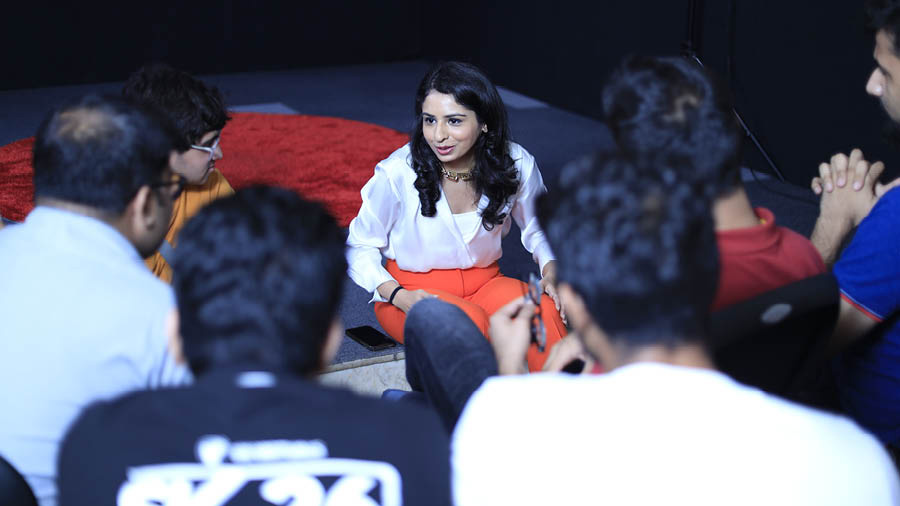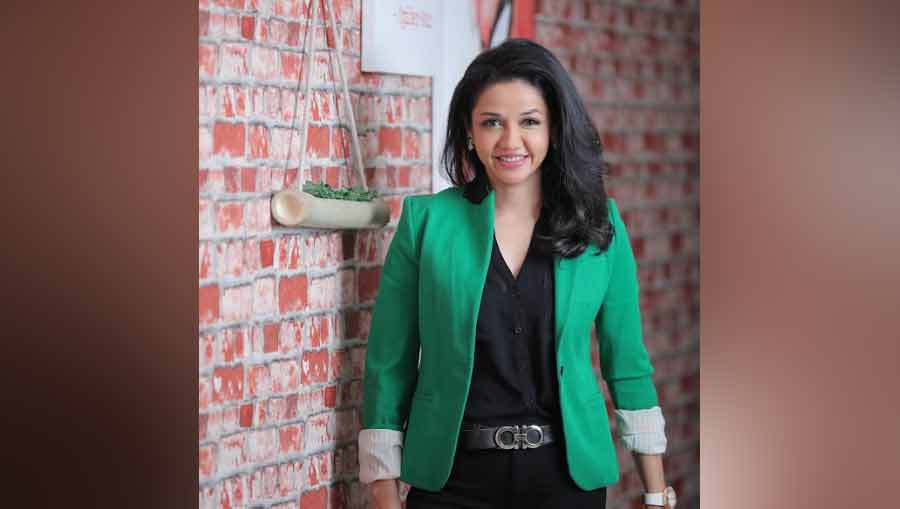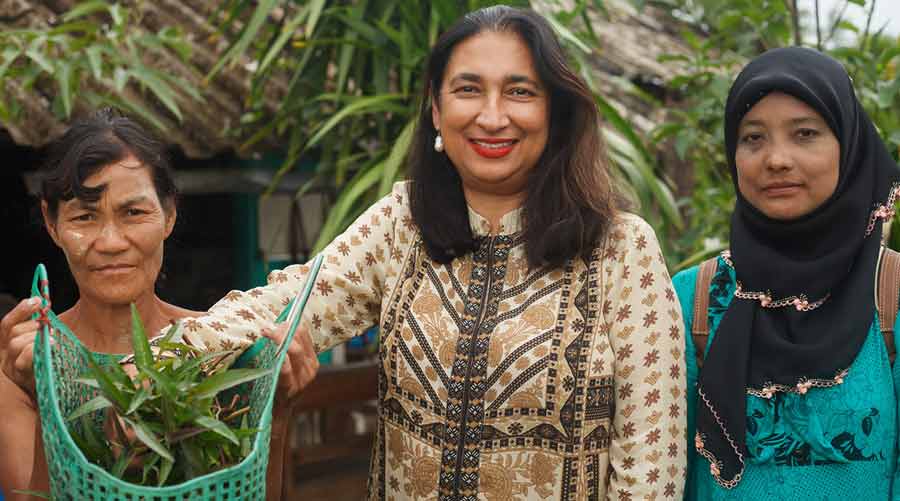For more than a century, the idea of the American Dream has fascinated the world. An idea premised on the promise that where you go in life cannot and should not be decided by where you come from. But what does the corresponding version look like in India, where 65 per cent of the population is below 35 years of age? In other words, what sort of dream does the youth of India believe in?
Josh Talks, whose mission it is to “unlock and nurture human potential” has an answer. “We believe in imbibing the feeling of the Indian Dream, which entails that no matter your caste, region, community or financial status, you can make it big if you have the energy and the drive to do it. Whether you come from a tier 1, tier 2 or tier 3 city, or from anywhere else in India, it doesn’t control your destiny,” says Supriya Paul, 29, co-founder and CEO of Josh.
My Kolkata caught up with Supriya to understand Josh’s mission better, learn about the trends shaping Indian youth, lessons from her own entrepreneurial journey and more. Edited excerpts from the conversation follow.
‘Very few people care about the Indians living near or below the poverty line’
My Kolkata: Tell us the origin story of Josh Talks. How did it come about and what were the biggest challenges to begin with?
Supriya Paul: We started out in 2014-15, when I was in my final year of college and Shobith (Banga), the other co-founder, was in his second year. We came from different backgrounds. I was pursuing a BCom degree and wanted to become a chartered accountant. He was really into sports, especially cycling. But what we shared was a frustration about how young people with so much potential in our country were not getting the right guidance and advice. We wanted to build something that provided the youth of India with role models and a pathway to change their lives. That’s where Josh Talks was born, primarily as a platform to invite speakers, which then broadened over time into an ecosystem of counselling and learning.
The biggest challenge we had was societal, the challenge of changing mindsets. Very few people care about the Indians living near or below the poverty line. No advertiser pays attention to them and nobody believes that content targeted at them can be monetised. The challenge for us was to understand how to build a sustainable model around them, around people coming from underprivileged backgrounds, including the tier 2 and tier 3 cities of India.
‘We wanted to make the process of choosing careers more objective, scientific and rational’

On YouTube, Josh has 19 channels providing content in 11 languages TT archives
Apart from content creation, what are the other verticals that Josh offers when it comes to upskilling?
At Josh, content is fundamental for us, with YouTube being our primary distribution platform. We have 19 channels on YouTube that provide content in 11 languages. Currently, we have crossed 180 million monthly views across our channels and the goal is to double that in due course.
In terms of the other verticals, while our content focuses on understanding and articulating problems, the rest of our services are about creating value. One of the things we noticed is that there is still a huge deficiency among India’s youth when it comes to speaking English confidently. Applications have emerged that improve grammar and syntax, but there was nothing in the market that was telling Indians how to speak English fluently and confidently. That’s where we brought in our English Speaking App, which presently has more than five million downloads and more than three lakh paid users. Alongside that, we realised that so much of the decision-making that happens in terms of young careers in India is based on emotional advice, which mainly comes from one’s family members. We wanted to make the process of choosing careers more objective, scientific and rational. That’s where we brought in counselling services. We’ve also introduced coaching services because ours is a country of test takers, but students often don’t get the kind of coaching they need.
Could you briefly mention a few speakers who have shared their experiences on Josh Talks and created a stir?
There’s Sheetal Jain, the daughter of a bar dancer and sex worker who pursued her passion for drumming and went to study it in the US on a full scholarship. Then there’s the story of Amruta Soni, which has accumulated over 12 million views. Amruta is a transwoman, who spoke about integrating into society and applying for a government job, for which she was rejected. But once her interview went viral, she finally got the job she wanted.
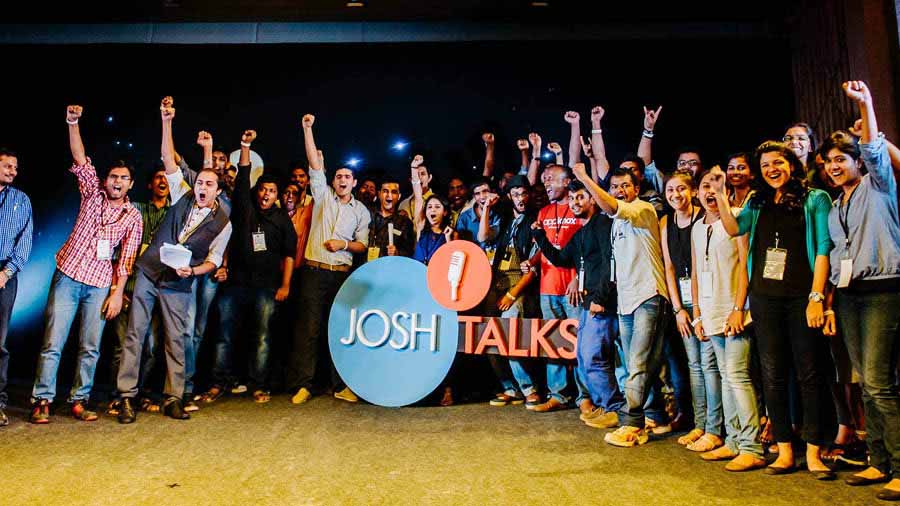
Josh has been recognised as one of The Goalkeepers by the Bill and Melinda Gates Foundation Josh Talks
Josh has recently launched a campaign called City Champions to reward changemakers across Indian cities. Tell us more about this and how it fits into the concept of sustainability, as outlined by the Sustainable Development Goals (SDGs) and the G20.
Sustainability is an important pillar behind everything we do at Josh, for which we’ve been recognised as one of The Goalkeepers by the Bill and Melinda Gates Foundation. Specifically, City Champions is about recognising changemakers across Indian cities who are working in sanitation, healthcare, transport and other sectors that rarely attract the limelight. Our goal here is two-fold. First, by highlighting their stories, we want to contribute towards making their lives better in terms of creating awareness about better infrastructure. Second, we want to position them as role models, as people who are vital to our society and also promote the kind of work they are doing as alluring career options.
‘Even now in so many households in India, a mobile phone is a man’s property’
What have you identified as the gravest concerns or obstacles plaguing India’s youth today?
There’s an extreme lack of exposure. Tier 1 India may be talking about the metaverse, but the rest of the country has no clue about it. The information asymmetry is incredible. This is partly because most of the news is only available in English or Hindi. There’s also a lot of ignorance about career progression and what constitutes smart career choices. Despite the upward mobility that we’ve seen among many Indians, a lot of India’s youngsters still grow up believing that they can’t escape what they’re born into. If you’re born in debt, you’ll die indebted. That’s a sentiment that still prevails. For girls, there’s the added concern of safety and security, particularly when it comes to commuting. Work from home and the internet revolution through Jio has helped address the gender divide somewhat, but even now in so many households in India, a mobile phone is a man’s property. Women may get to use it for a few hours a day, but it still belongs to a man.
Interestingly, the gender divide also manifests in other ways, in terms of attitudes. For most men in India’s tier 2 and tier 3 cities, aspiring to join the civil services is about stability and security in terms of their careers. Whereas for women, it’s more about contributing to society and making a change.
Entrepreneurship more feasible in India; female entrepreneurship on the rise in Maharashtra, West Bengal and Odisha
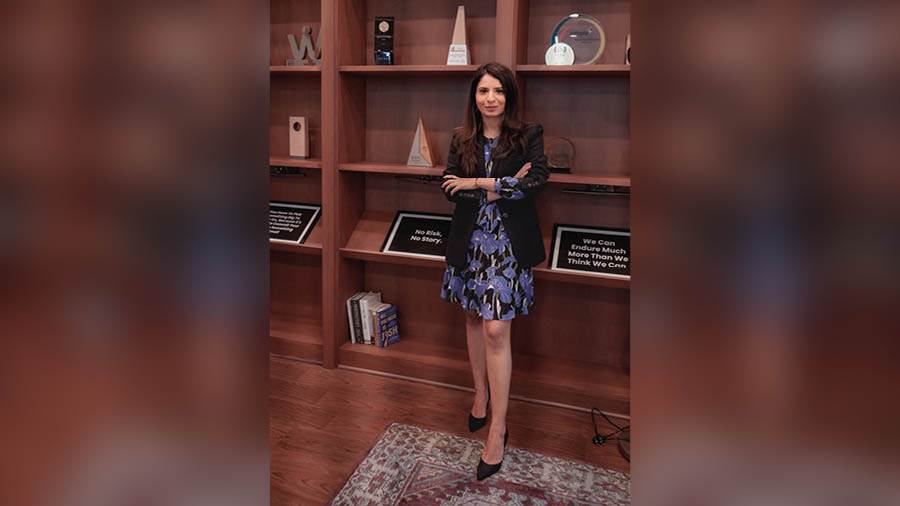
Young Indians feel more confident to set up their own businesses nowadays, feels Supriya Josh Talks
Conversely, what have been some of the most positive prominent trends that you have noticed with respect to Indian youth over the last decade or so?
The most important trend is that progress is incremental, and we are slowly getting to the stage where it could become exponential. Entrepreneurship has become much more feasible among Indian youth. Earlier, most people wanting to start a business would be family-reliant. Now, there’s more confidence and resources to set things up by oneself, which is also why quite a lot of young Indians are moving from wanting government jobs to financing their own businesses. During Covid-19, a number of trends emerged in the creator economy. TikTok became a gamechanger (until it was banned by the Government of India). Even though a lot of tier 1 Indians felt that TikTok was creating cringe content, the platform allowed numerous youngsters from tier 2 and tier 3 cities to monetise their creativity. There’s also a considerable growth of ed-tech companies, which are encouraging more and more people to become teachers, especially among women.
Any region-specific trends you would like to highlight?
In South India, government jobs are not as sought after as they once were. More people are looking for private jobs and businesses. Over in the North, however, government jobs are still very much the number one priority. But even among those sitting for government exams, the propensity to move on after a few failed attempts is much greater now than it was in the past. While the creator economy continues to be centred around North India, female entrepreneurship is on the rise across the country, especially in Maharashtra, West Bengal and Odisha.
‘As a woman, your dowry is often determined by your IAS rank or IELTS scores’
So many young Indians are moving abroad nowadays, in search of better educational and work opportunities. How does India prevent this brain drain and incentivise its best young talent to stay back?
This will take time to solve because the role models for a lot of Indians are still the NRIs who have made it big. By and large, moving abroad brings more freedom and opportunities. So, India has to show that those same opportunities exist in India. For instance, taxation benefits are so much greater abroad that unless systemic changes happen in India, most businesses that start in India will eventually move abroad to places like Singapore or the US. Certain sectors are really lagging behind in India. Today, if you’re a woman in India and you want to work in the healthcare sector, but not as a doctor, then there aren’t good enough opportunities in India. You’ll inevitably look to move out to countries such as the UAE. Over in Punjab, there remains the tendency to migrate to Canada, so a lot of abroad ambitions are also region-centric. Moreover, there’s a lot of sexism baked into this, too. As a woman, your dowry is often determined by your IAS rank or IELTS scores. This shows how social fault lines blend in with the question of moving out of India versus staying back.
‘I haven’t seen enough women supporting women’
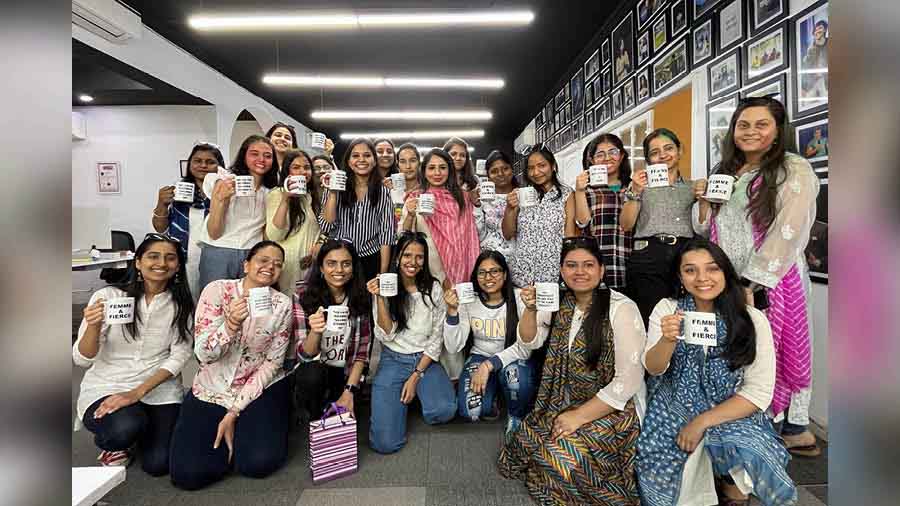
None of Supriya’s mentors till date has been a woman Josh Talks
Lastly, you have been recognised by Forbes as one of the top 20 self-made women in India (2020). What has been the hardest part about being a self-made entrepreneur in this country and what lessons have you learnt from it?
Back in 2015, starting a business wasn’t very appealing, for reasons to do with governments as well as communities. But that’s become easier now, as the world is getting more connected. For us at Josh, access to capital proved hard, because ours isn't an easily understood business. It’s not easy to put us into a box and attach a multiple to our potential growth.
If I were to look at my journey through the gender lens, then I can say that I haven’t seen enough women supporting women. None of my mentors till date has been a woman. The ones I looked up to were inaccessible or unavailable. So many women, especially those who come from tier 2 and tier 3 cities, carry a lot of emotional baggage. They’ve been put down so many times that they lose their fire to challenge the status quo. They’re crippled by self-doubt and don’t get the support they need. So, I’d really urge women to support other women, to be there for them and help them grow.
